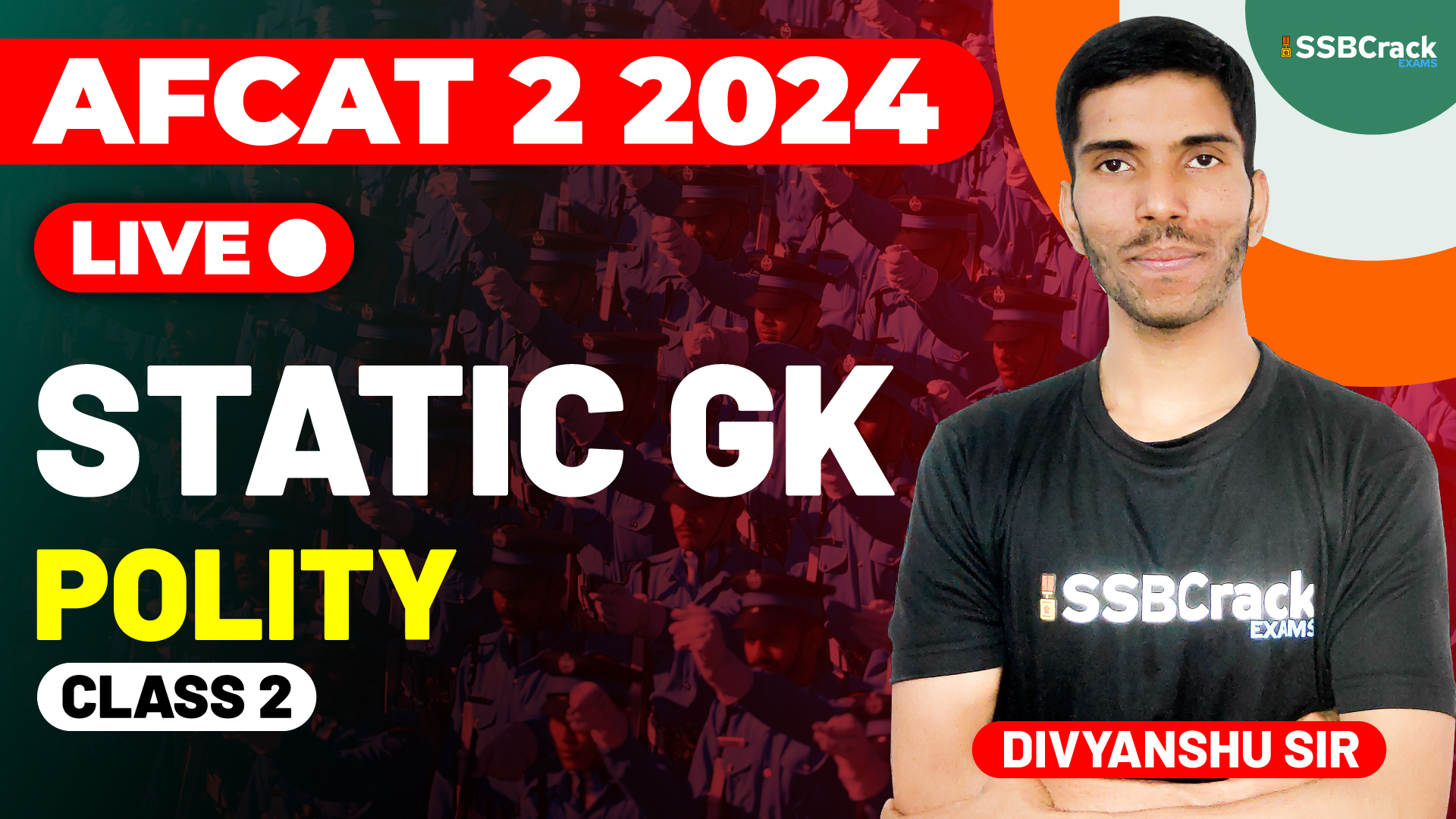Government schemes play a vital role in the socio-economic development of a country. They are instrumental in addressing various issues and promoting growth across different sectors. For AFCAT 2 2024 aspirants, understanding the key schemes launched by the Indian government is essential for the General Knowledge section. This article provides an overview of some important government schemes introduced or continued in 2024.
AFCAT 2 2024 Exam Static GK Polity Class 2
Pradhan Mantri Kisan Samman Nidhi (PM-KISAN)
Overview
Launched in 2019, PM-KISAN provides income support to all landholding farmers’ families to supplement their financial needs.
Key Features
- Financial Assistance: Rs. 6,000 per year, payable in three equal installments of Rs. 2,000 each.
- Beneficiaries: Small and marginal farmers holding up to 2 hectares of land.
Pradhan Mantri Awas Yojana (PMAY)
Overview
PMAY aims to provide affordable housing to the urban and rural poor.
Key Features
- Urban Component (PMAY-U): Provides central assistance to urban poor for constructing, enhancing, and acquiring houses.
- Rural Component (PMAY-G): Targets housing for the rural poor, ensuring every rural family has a pucca house.
Ayushman Bharat – Pradhan Mantri Jan Arogya Yojana (AB-PMJAY)
Overview
Launched in 2018, AB-PMJAY is a health insurance scheme aimed at providing coverage to the economically vulnerable.
Key Features
- Coverage: Up to Rs. 5 lakh per family per year for secondary and tertiary care hospitalization.
- Beneficiaries: Over 10 crore poor and vulnerable families.
Atal Pension Yojana (APY)
Overview
APY is a pension scheme targeted at the unorganized sector workers to ensure they have a secure old age.
Key Features
- Age of Entry: 18 to 40 years.
- Pension Benefits: Guaranteed pension of Rs. 1,000 to Rs. 5,000 per month after the age of 60.
Pradhan Mantri Mudra Yojana (PMMY)
Overview
Launched in 2015, PMMY aims to provide loans to non-corporate, non-farm small/micro enterprises.
Key Features
- Types of Loans: Shishu (up to Rs. 50,000), Kishore (Rs. 50,000 to Rs. 5 lakh), and Tarun (Rs. 5 lakh to Rs. 10 lakh).
- Objective: Promote entrepreneurship and support small businesses.
Jal Jeevan Mission (JJM)
Overview
JJM aims to provide safe and adequate drinking water through individual household tap connections by 2024 to all rural households.
Key Features
- Objective: Ensure every rural household has access to potable water.
- Implementation: Decentralized approach with community participation.
Pradhan Mantri Garib Kalyan Yojana (PMGKY)
Overview
PMGKY is a comprehensive package to help the poor fight the battle against COVID-19.
Key Features
- Free Food Grains: Distribution of free food grains to the poor.
- Direct Benefit Transfers (DBT): Financial assistance through DBT to vulnerable sections.
National Education Policy (NEP) 2020
Overview
NEP 2020 aims to overhaul the Indian educational system to make it more holistic, flexible, multidisciplinary, and aligned to the needs of the 21st century.
Key Features
- School Education: Emphasis on foundational literacy and numeracy, a new 5+3+3+4 curricular structure.
- Higher Education: Introduction of a 4-year multidisciplinary bachelor’s program, emphasis on research and innovation.
Swachh Bharat Mission (SBM)
Overview
Launched in 2014, SBM aims to eliminate open defecation and improve solid waste management.
Key Features
- Urban Component (SBM-U): Focus on solid waste management and making urban areas open defecation free.
- Rural Component (SBM-G): Promotes cleanliness and hygiene in rural areas.
Digital India Program
Overview
Launched in 2015, the Digital India program aims to transform India into a digitally empowered society and knowledge economy.
Key Features
- Digital Infrastructure: Development of secure and stable digital infrastructure.
- Digital Services: Providing government services digitally to enhance accessibility.
Conclusion
Understanding these key government schemes is essential for AFCAT 2 2024 aspirants. These schemes reflect the government’s efforts to address various socio-economic issues and promote inclusive growth. Familiarity with these initiatives will not only help in the static GK section but also provide insights into the current developmental policies of the Indian government.








